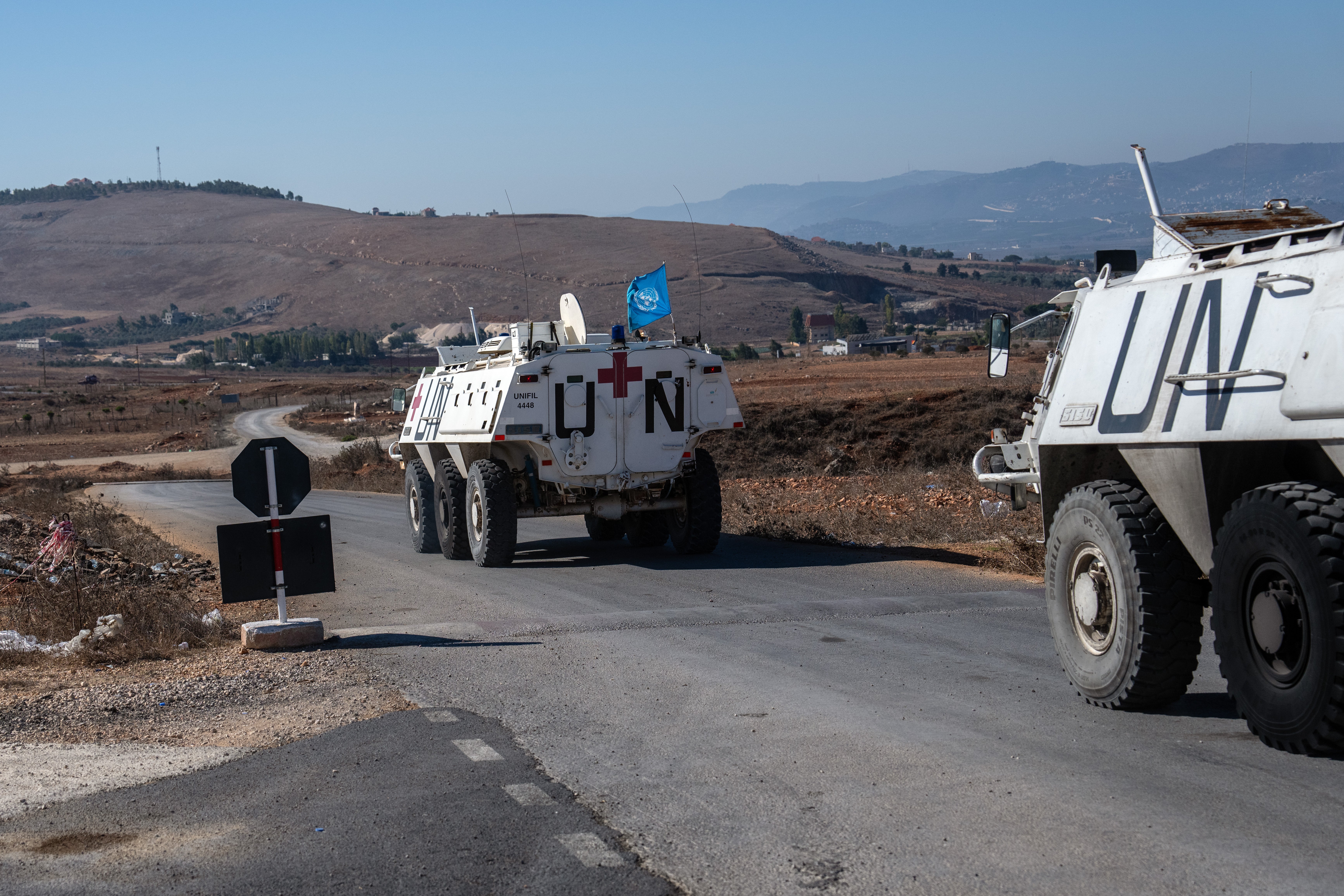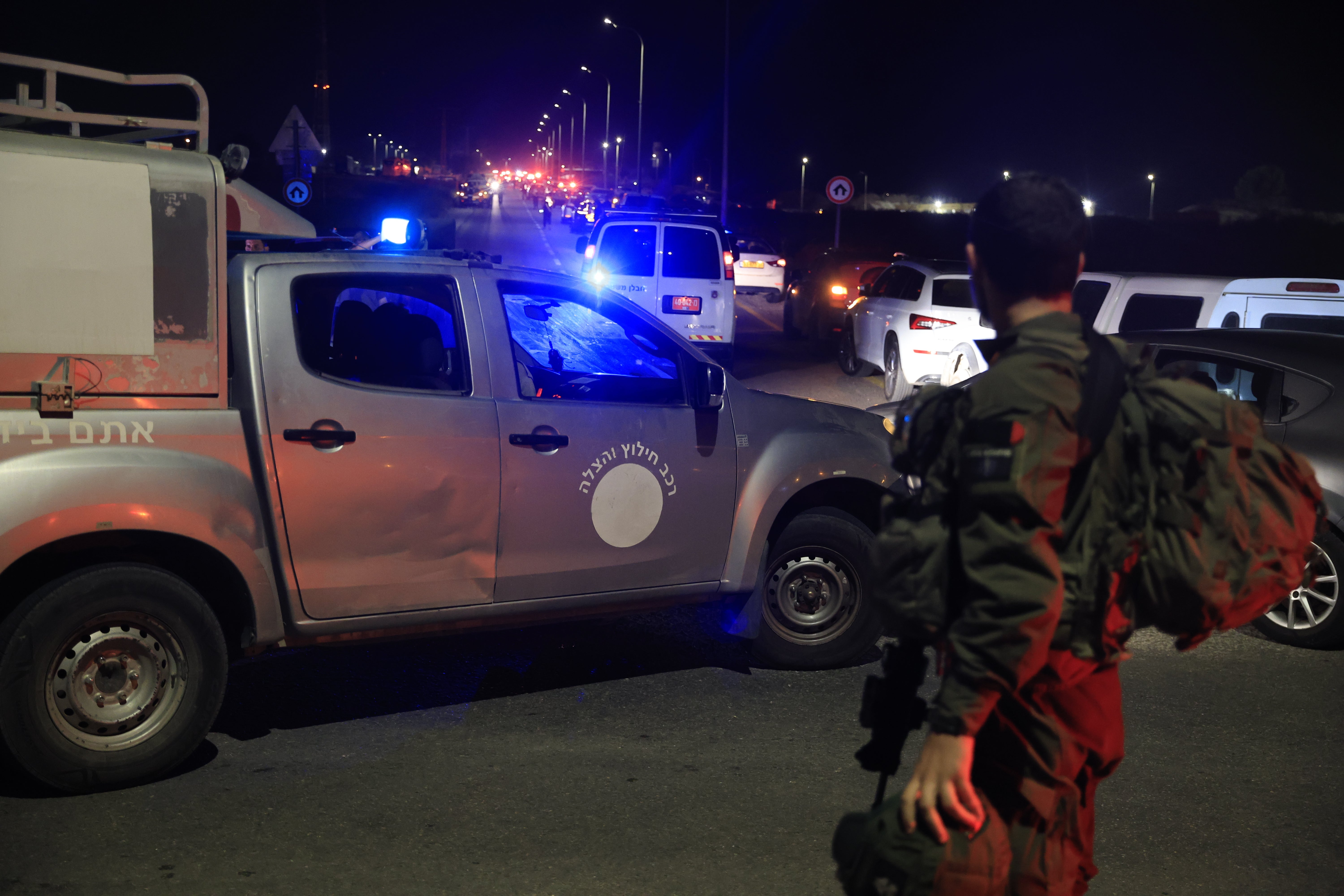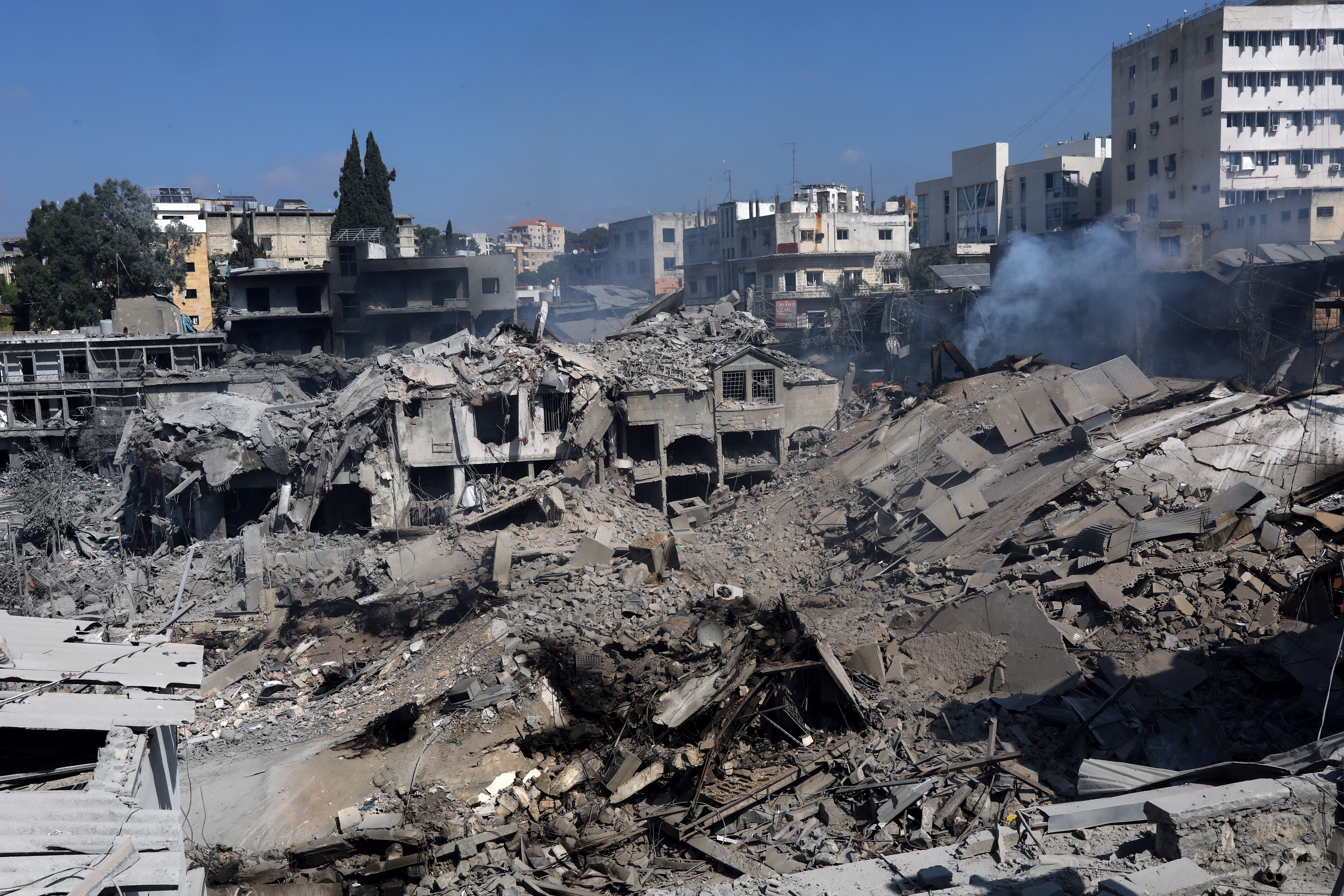The United Nations have said Israeli tanks “forcibly entered” a base of its peacekeeping force in southern Lebanon, with Israeli prime minister Benjamin Netanyahu demanding they leave the area.
In the latest accusation of Israeli violations and attacks that have been denounced by Israel‘s own allies, the United Nations Interim Force in Lebanon (UNIFIL) peacekeeping force said two Israeli Merkava tanks destroyed and burst through the main gate of a base before dawn on Sunday morning.
After the tanks left, shells exploded 100 metres away, releasing smoke that blew across the base and caused UN personnel to fall sick, with 15 requiring treatment despite wearing gas masks, it said in a statement.
In its version of events, the Israeli military said militants of the Iran-backed group Hezbollah had fired anti-tank missiles at Israeli troops, wounding 25 of them. The attack was very close to a UNIFIL post and a tank that was helping evacuate the casualties under fire then backed into the UNIFIL post.
“It is not storming a base. It is not trying to enter a base. It was a tank under heavy fire, mass casualty event, backing up to get out of harm’s way,” the military’s international spokesperson, Nadav Shoshani, told reporters.

In a statement, the military said it used a smoke screen to provide cover for the evacuation of the wounded soldiers but its actions posed no danger to the UN peackeeping force.
Five peacekeepers have been wounded in a series of strikes in recent days, most blamed by UNIFIL on Israeli forces.
The UN force said any deliberate attack on peacekeepers was “a grave violation of international humanitarian law and Resolution 1701” that established the mission.
Earlier on Sunday, Mr Netanyahu said a statement addressed to UN Secretary-General Antonio Guterres: “The time has come for you to withdraw UNIFIL from Hezbollah strongholds and from the combat zones.”
He added: “The IDF has requested this repeatedly and has met with repeated refusal, which has the effect of providing Hezbollah terrorists with human shields.”

In Israel, Hezbollah is being blamed after Israeli rescue services said on Sunday evening that almost 40 people have been wounded in a drone strike in the central city of Binyamina, three of them critically.
The Pentagon announced on Sunday that the United States will send a Terminal High Altitude Area Defence (THAAD) battery and troops to Israel, shortly after Iran warned Washington to keep American military forces out of Israel.
Spokesman Major General Pat Ryder said in a statement that defence secretary Lloyd Austin authorised the deployment of the THAAD battery at the direction of President Joe Biden.
Maj Gen Ryder said the system will help bolster Israel‘s air defences following Iran’s missile attacks on the country in April and October.
“This action underscores the United States’ ironclad commitment to the defence of Israel, and to defend Americans in Israel, from any further ballistic missile attacks by Iran,” Maj Gen Ryder said.
However, it comes after Mr Austin, in a call with Israeli defence minister Yoav Gallant on Saturday, expressed “deep concern” about reports Israeli forces had fired on peacekeeper positions. He urged Israel to ensure their safety and that of the Lebanese military, which is not party to Israel’s conflict with Hezbollah.
Italy, France and Spain were among the countries that condemned the reported Israeli attacks on UN peacekeepers, with the Italian government, usually a vocal supporter of Israel, denouncing them as “unacceptable”.

The Israeli military has already told UN peacekeepers to get out of the way, asking them weeks ago to prepare to relocate more than 3 miles from the border, according to an excerpt from a message seen by Reuters.
Hezbollah, which Israel has been battling on the ground in southern Lebanon since it launched an incursion at the start of this month, denies Israel’s accusation that it uses the proximity of peacekeepers for protection.
The conflict between Israel and Hezbollah resumed a year ago when the Iranian-backed group began firing rockets at northern Israel in support of Hamas at the start of the Gaza war and has sharply escalated in recent weeks.
Israel’s assault against Hezbollah over the past three weeks has uprooted 1.2 million Lebanese and inflicted an unprecedented blow on the group by killing most of its senior leadership.
Lebanon’s government says more than 2,100 people have been killed and 10,000 wounded in over a year of fighting, mainly over the past few weeks. The toll does not distinguish between civilians and combatants but includes scores of women and children.
The Middle East meanwhile remains on high alert for Israel to retaliate against Iran for an 1 October barrage of long range missiles launched in response to Israel’s assaults on Lebanon.
Iran said on Sunday it has “no red lines” in defending itself. Foreign Minister Abbas Araqchi’s comments appeared intended to counter suggestions that Iran would absorb an Israeli strike without a response, as it did earlier this year when Israel last struck Iran after a volley of Iranian missiles.
Later, Revolutionary Guards Aerospace Commander Amir Ali Hajizadeh said Tehran was ready to respond to any Israeli action, according to the semi-official Tasnim news agency.

